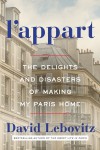19
Followers
19
Following
M Sarki
Besides being a poet with four collections published, M Sarki is a painter, film maker, and photographer. He likes fine coffee and long walks.
M Sarki has written, directed, and produced six short films titled Gnoman's Bois de Rose, Biscuits and Striola , The Tools of Migrant Hunters, My Father's Kitchen, GL, and Cropped Out 2010. More details to follow. Also the author of the feature film screenplay, Alphonso Bow.
Currently reading
L'Appart: The Delights and Disasters of Making My Paris Home
We Learn Nothing: Essays
Elmet: LONGLISTED FOR THE MAN BOOKER PRIZE 2017
Limbo, and Other Places I Have Lived: Short Stories
The Double Life of Liliane
At Home with the Armadillo
American Witness: The Art and Life of Robert Frank
Autumn
Inside Out: A Personal History of Pink Floyd (Reading Edition)
American Witness: The Art and Life of Robert Frank
The Loft
 http://msarki.tumblr.com/post/147262650943/the-loft-by-marlen-haushofer
http://msarki.tumblr.com/post/147262650943/the-loft-by-marlen-haushoferThe jacket blurb claims the book explores the anatomy of a desiccated marriage, the power of solitude, and the discord of Austrian society in the aftermath of Nazism. With less than a fifth of the book remaining for me to read there is yet no indication for any examination of Nazism aftermath or Austrian societal discord, which has become a given in all literature pertaining to that horrendous historical event. But solitude, and relationships of every stripe including marriage, are being explored almost savagely and with a hunger yet to be assuaged.
The talent that lies behind the work of Marlen Haushofer is in her ability to write with a voice of reason and affinity for her reader. She is easy to like. It is comforting being with her. Her first-person narrator feels trustworthy and kind, even in light of possible indiscretions or violences looming portentously in the foreground. Because of this honesty in her writing, unseemly behaviors, threatened or otherwise, feel appropriate and okay, even though in hindsight proper society deems them deplorable. But I respect Haushofer as she refuses to mince words and remains steadfast in her attempts at mining the truth from our everyday fictions. Almost any activity the narrator persists in feels unconnected to her. She is simply going through the motions of being a housewife, mother, friend, and caring acquaintance. She is really none of these things with any certainty and commitment. All that matters to her spiritually is her sketching of birds upstairs in the loft, a room she has made of her own in a house that was never meant for her to live in. Her husband remains emotionally distant, but guilt-ridden and shamed enough by his past abandonment of her to fervently provide the monetary means necessary for the household to survive. Herbert considers their nightly television viewing as their sacred time together, and the Saturday afternoon visits to the war museum a shared cultural activity sure to enrich their marriage.
Again, for me, the theme of non-communication and deception in relationships rears its ugly head. And I appreciate Marlen Haushofer bringing it to our attention. Failure to talk about the matters that upset us, that get in our way, or our checkered past threatening to derail everything thought important in our daily life is nothing less than cowardly. For example, in my own recovery from addiction I was told I was only as sick as my secrets. And I still believe this to be true. But how many of us cling to a strict privacy in these shameful matters that keep the very ghosts that threaten our existence alive and thriving? We do ourselves great harm in harboring this dis-ease, and it ultimately ruins the lives of those we so much wanted to love. Including our own.
The Loft is a most definitely an additional Haushofer title worth reading and passing along.







